India Leads Digital Revolution: RBI Dy Guv Patra
By Rediff Money Desk, Jaipur Nov 13, 2024 16:25
India is at the forefront of the digital revolution, with financial technology driving digital payments and the digital economy poised to make up a fifth of GDP by 2026, says RBI Deputy Governor Michael Debabrata Patra.

Jaipur, Nov 13 (PTI) India is at the forefront of the digital revolution and financial technology is speeding up digital payments, Reserve Bank Deputy Governor Michael Debabrata Patra said on Wednesday.
Vibrant e-markets are springing up and expanding their reach. It is estimated that the digital economy currently accounts for a tenth of India's GDP, he said, adding that going by growth rates observed over the past decade, it is poised to constitute a fifth of GDP by 2026.
In his inaugural address at the DEPR Conference on 'Digital Technology, Productivity and Economic Growth in India' here, Patra also said India is uniquely positioned to unlock new growth avenues and optimise existing ones with its digital public infrastructure (DPI), a vibrant information technology sector and a burgeoning youth population, including one of the largest AI talent bases.
On digitalisation of Indian finance, Patra said micro-level evidence from surveys of Indian banks shows that while all of them have implemented mobile and internet banking, 75 per cent offer online account opening, digital KYC and digitally-enabled doorstep banking.
Additionally, 60 per cent provide digital lending, 50 per cent offer payment aggregator services, 41 per cent use chatbots, 24 per cent have adopted open banking, and 10 per cent have integrated Internet of Things (IoT) technology. As many as 19 private sector banks are leading the technology adoption.
"An AI-assisted review of the latest annual reports of Indian banks reveals various instances of productivity gains by SCBs (Schedule Commercial Banks) from digitalisation," he said.
Examples include monthly savings of 14,500 person-days, a 25-30 per cent decline in customer acquisition costs, reduction of the use of 84 tonnes of paper, saving of four lakh litres of fuel in commutes to banks by customers, and 40 per cent reduction in customer wait times at branches, he said.
The senior RBI official also informed that India is also closely involved with international organisations that are exploring the linkage of open finance API-based frameworks of different countries in a multilateral construct through initiatives like Project Nexus and mBridge.
Under India's G20 Presidency, the Global Digital Public Infrastructure Repository has been mooted as a resource base for key lessons and knowledge available from the actual experiences of G20 members and guest countries, Patra said.
The overall approach, he said, has been to balance risk mitigation and financial innovation, maintaining clear communication with stakeholders and adapting supervisory processes.
Five policy priorities drive the Reserve Bank's engagement: digital financial inclusion; digital public infrastructure (DPI); customer protection and cyber security; sustainable finance; and global integration and cooperation, the Deputy Governor said.
Vibrant e-markets are springing up and expanding their reach. It is estimated that the digital economy currently accounts for a tenth of India's GDP, he said, adding that going by growth rates observed over the past decade, it is poised to constitute a fifth of GDP by 2026.
In his inaugural address at the DEPR Conference on 'Digital Technology, Productivity and Economic Growth in India' here, Patra also said India is uniquely positioned to unlock new growth avenues and optimise existing ones with its digital public infrastructure (DPI), a vibrant information technology sector and a burgeoning youth population, including one of the largest AI talent bases.
On digitalisation of Indian finance, Patra said micro-level evidence from surveys of Indian banks shows that while all of them have implemented mobile and internet banking, 75 per cent offer online account opening, digital KYC and digitally-enabled doorstep banking.
Additionally, 60 per cent provide digital lending, 50 per cent offer payment aggregator services, 41 per cent use chatbots, 24 per cent have adopted open banking, and 10 per cent have integrated Internet of Things (IoT) technology. As many as 19 private sector banks are leading the technology adoption.
"An AI-assisted review of the latest annual reports of Indian banks reveals various instances of productivity gains by SCBs (Schedule Commercial Banks) from digitalisation," he said.
Examples include monthly savings of 14,500 person-days, a 25-30 per cent decline in customer acquisition costs, reduction of the use of 84 tonnes of paper, saving of four lakh litres of fuel in commutes to banks by customers, and 40 per cent reduction in customer wait times at branches, he said.
The senior RBI official also informed that India is also closely involved with international organisations that are exploring the linkage of open finance API-based frameworks of different countries in a multilateral construct through initiatives like Project Nexus and mBridge.
Under India's G20 Presidency, the Global Digital Public Infrastructure Repository has been mooted as a resource base for key lessons and knowledge available from the actual experiences of G20 members and guest countries, Patra said.
The overall approach, he said, has been to balance risk mitigation and financial innovation, maintaining clear communication with stakeholders and adapting supervisory processes.
Five policy priorities drive the Reserve Bank's engagement: digital financial inclusion; digital public infrastructure (DPI); customer protection and cyber security; sustainable finance; and global integration and cooperation, the Deputy Governor said.
Source: PTI
DISCLAIMER - This article is from a syndicated feed. The original source is responsible for accuracy, views & content ownership. Views expressed may not reflect those of rediff.com India Limited.
You May Like To Read
TODAY'S MOST TRADED COMPANIES
- Company Name
- Price
- Volume
- Srestha Finvest
- 0.67 ( -4.29)
- 67675345
- Vodafone Idea L
- 7.34 ( -0.41)
- 39063581
- AvanceTechnologies
- 0.96 (+ 4.35)
- 22450285
- Standard Capital
- 1.11 (+ 9.90)
- 21182942
- IFL Enterprises
- 1.01 ( -3.81)
- 14393443
MORE NEWS

Dr Reddy's & FDC Recall Products in US for...
Dr Reddy's Laboratories and FDC Ltd are recalling generic medications in the US due to...

Odd-Even Rule for Cleaner Fuels in Delhi:...
The Indian Biogas Association proposes enforcing the odd-even rule in Delhi NCR to...

CNG Price Hike: Retailers Seek Justification,...
CNG retailers like IGL and Adani Total Gas are pushing for a price hike after gas...




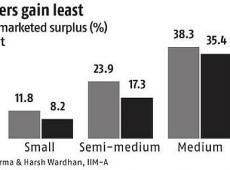


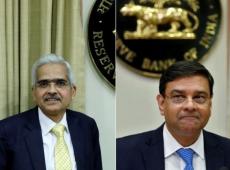
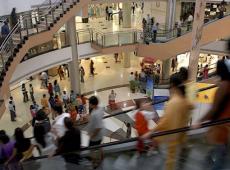

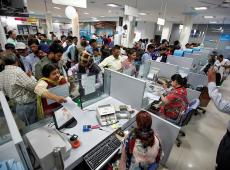
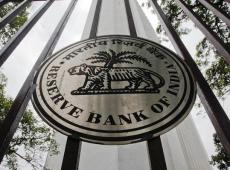
 © 2024 Rediff.com India Limited. All rights reserved.
© 2024 Rediff.com India Limited. All rights reserved.